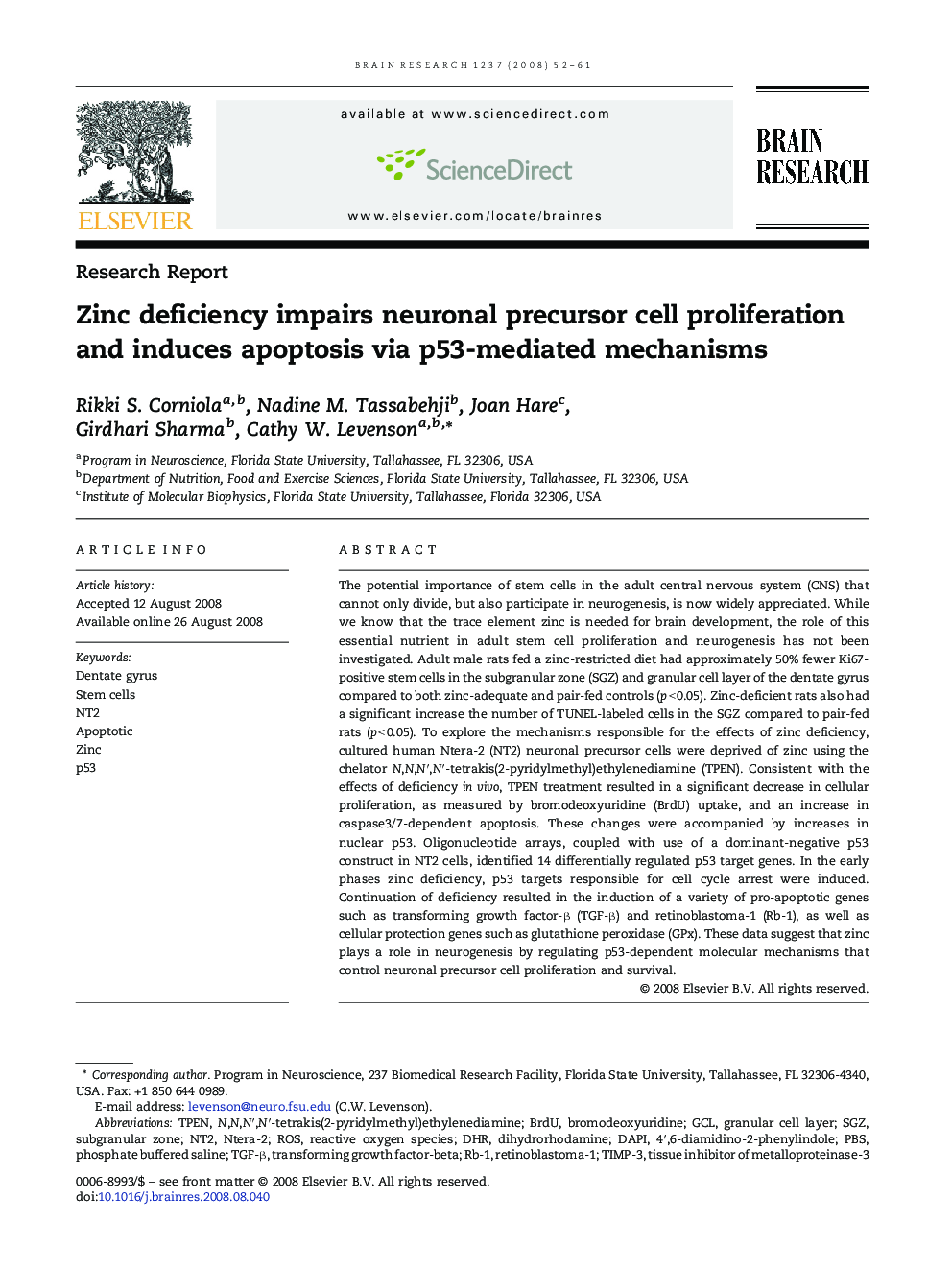| کد مقاله | کد نشریه | سال انتشار | مقاله انگلیسی | نسخه تمام متن |
|---|---|---|---|---|
| 4329255 | 1614202 | 2008 | 10 صفحه PDF | دانلود رایگان |

The potential importance of stem cells in the adult central nervous system (CNS) that cannot only divide, but also participate in neurogenesis, is now widely appreciated. While we know that the trace element zinc is needed for brain development, the role of this essential nutrient in adult stem cell proliferation and neurogenesis has not been investigated. Adult male rats fed a zinc-restricted diet had approximately 50% fewer Ki67-positive stem cells in the subgranular zone (SGZ) and granular cell layer of the dentate gyrus compared to both zinc-adequate and pair-fed controls (p < 0.05). Zinc-deficient rats also had a significant increase the number of TUNEL-labeled cells in the SGZ compared to pair-fed rats (p < 0.05). To explore the mechanisms responsible for the effects of zinc deficiency, cultured human Ntera-2 (NT2) neuronal precursor cells were deprived of zinc using the chelator N,N,N′,N′-tetrakis(2-pyridylmethyl)ethylenediamine (TPEN). Consistent with the effects of deficiency in vivo, TPEN treatment resulted in a significant decrease in cellular proliferation, as measured by bromodeoxyuridine (BrdU) uptake, and an increase in caspase3/7-dependent apoptosis. These changes were accompanied by increases in nuclear p53. Oligonucleotide arrays, coupled with use of a dominant-negative p53 construct in NT2 cells, identified 14 differentially regulated p53 target genes. In the early phases zinc deficiency, p53 targets responsible for cell cycle arrest were induced. Continuation of deficiency resulted in the induction of a variety of pro-apoptotic genes such as transforming growth factor-β (TGF-β) and retinoblastoma-1 (Rb-1), as well as cellular protection genes such as glutathione peroxidase (GPx). These data suggest that zinc plays a role in neurogenesis by regulating p53-dependent molecular mechanisms that control neuronal precursor cell proliferation and survival.
Journal: Brain Research - Volume 1237, 27 October 2008, Pages 52–61